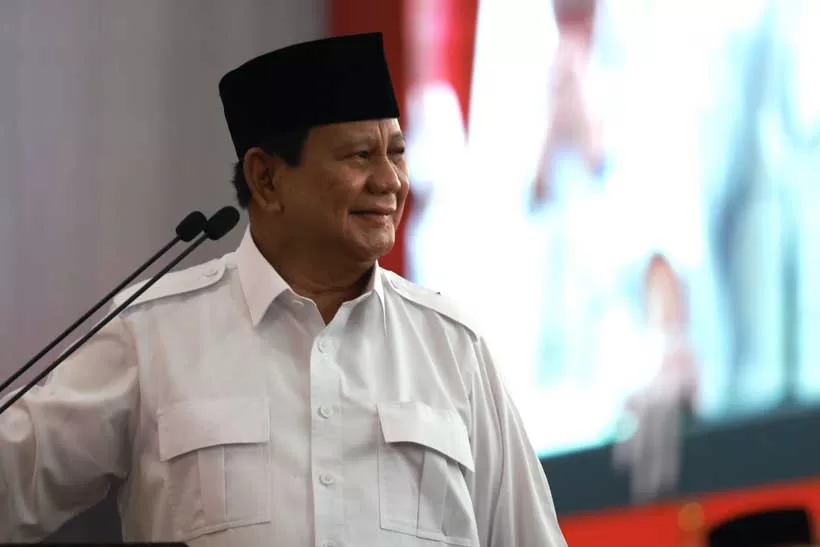Indonesia’s 2024 simultaneous general elections and regional elections are finally over. After the dust slowly settles, an issue deep-rooted within Indonesian politics is yet again revealed.
During his speech at Golkar Party’s 60th anniversary rally, President Prabowo highlighted the fact that elections in Indonesia are extremely costly. Trillions of rupiah are spent by state electoral institutions to organise the entire process. For candidates and political parties, similar hefty amounts must be invested to secure a victory. Therefore, for the sake of cost efficiency, Prabowo suggested that direct regional elections to choose Indonesia’s governors and mayors be replaced with indirect elections by local parliaments.
Prabowo’s statement actually points to a relevant problem. The Cost of Politics in Indonesia report recently published by the Westminster Foundation for Democracy (WFD) explained just how much financial and social resources election participants have to mobilise in order to obtain a chance of winning enough votes.
The open-list representation system, the decision to hold elections simultaneously, weak and inconsistent regulatory enforcement by electoral authorities, and “accepted” culture of vote-buying are the main factors contributing to the high cost of politics in Indonesia.
Similarly, a previous study illustrated that money politics is now an “inseparable part” of Indonesian elections, caused by exclusive political party management, regulations that encourage election contestants to engage in money politics, increasingly pragmatic and permissive societal views over money politics, and weak law enforcement practices.
On average, an aspiring legislative candidate spends at least 5 billion rupiah (around 315.000 USD) throughout the nomination, campaign, election, and post-election processes. Candidates for governors and mayors may need to spend even more. Usually, they obtain such funding through personal wealth, donations from family, peer groups, and community networks, and party assistance.
However, party support in Indonesia is very limited, forcing candidates to resort to their own means of seeking funds. Thus, those who already have prior connections to the political and business world, such as relatives of incumbent governors and mayors, are favoured by the system. This status quo threatens to exclude women and youth from political office due to the exceedingly uneven playing field and heightens risk of corruption, including embezzlement of funds and collusion with business interests.
With all things considered, are indirect elections the ultimate solution to this fundamental problem for Indonesian democracy?
Looking back at history, Indonesia did have indirect elections in the past. During the New Order period under President Suharto (1966–1998), gubernatorial and mayoral candidates were chosen by the central government through the Ministry of Home Affairs, then deliberated upon (and usually accepted) by local parliaments.
Coupled with the “dual-function (dwifungsi)” doctrine enabling political participation by the Indonesian armed forces, this results in a majority of governors and mayors being filled by military officers hand-picked by the president.
This system ensured that all local regions were governed by individuals loyal to the central government regardless of whether local residents felt represented, and did not provide space for political openness nor diversity.
Only after political reform (Reformasi) beginning in 1998 did the electoral system undergo an overhaul to decentralise and democratise the process, which enabled local residents to elect figures most representative of their identity, views, and interests over those of the central government.
Though it remains to be seen whether President Prabowo’s idea is to return to that exact system or propose another arrangement, his position is consistent. Back in 2014, Prabowo’s coalition in parliament pushed for the elimination of direct regional elections by revising the Regional Elections Law. It had initially succeeded to be passed by parliament before President Susilo Bambang Yudhoyono signed a government regulation that overturned the law, thus maintaining direct elections.
Nevertheless, moving elections from the people to local parliaments risks reducing public participation and concentrating decision-making power among political elites. Furthermore, the shift will not eliminate money politics as intended, but rather further entrench transactional politics and weaken public accountability of local leaders, according to Cecep Hidayat, a political analyst at Universitas Indonesia. President Yudhoyono also shared the same opinion 10 years ago.
So what needs to be done to address the persisting money politics problem? As advocated for in WFD’s Cost of Politics report, rather than taking away the people’s voice entirely, better alternative solutions should instead focus on stronger public engagement, greater transparency and accountability, especially by political parties and election authorities.
Firstly, financial assistance for political parties should be increased to make them less dependent on donations and improve the share of female and youth cadres. Second, parties must commit to greater transparency of party cadre recruitment and accountability of party finance management.
Third, to guarantee equal access to funds and increase representation of marginalised groups such as women and youth in electoral candidacy and party organisation, affirmative action policy should be strengthened and proportional financial support mandated.
Finally, these must be upheld by the electoral authorities through demanding compliance from political parties and candidates to report campaign spending accurately and enforce punitive measures on those who do not. This also includes upholding the legal mandate of gender quotas in political party nominations.
These recommendations serve to address money politics while also answering President Prabowo’s concern of economic development. By ensuring political parties and candidates are held accountable and transparent to the public, they could then be motivated to create relevant policies that better represent the Indonesian people’s aspirations regarding economic growth and public welfare, putting resources where it benefits people the most.
Though obviously needing greater political will and commitment than simply going back to indirect elections, maintaining the people’s power to directly elect their leaders will simultaneously strengthen Indonesia’s democracy, instead of threatening its progress.
